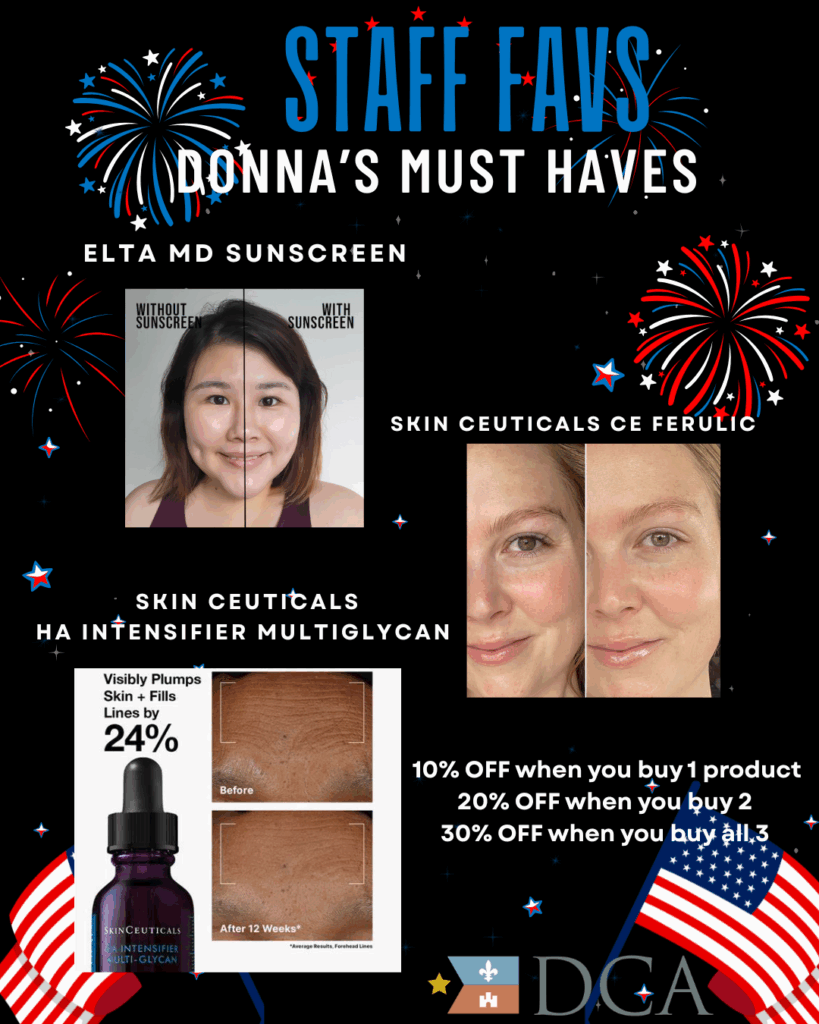A lot of people can claim to be skin specialists and it can be hard to know what the term really means. A big part of that is that there is no technical definition or requirements for someone to call themselves a ‘skin specialist’, or a ‘skin care specialist’.
A dermatologist, an esthetician and a cosmetologist all require a certain amount of schooling and training to obtain their titles, whereas anyone can call themselves a ‘skin specialist’.
What determines a dermatologist is determined at the national level (as with all physicians) but both estheticians and cosmetologist qualifications vary by state.
Whenever considering treatment for any kind of medical skin condition, a board certified dermatologist should always be your first choice, as that is what they are meant for.
While cosmetologists or estheticians can be very helpful and do a good job with cosmetic skin treatments, seeing dermatologist skincare, or an esthetician or cosmetologist that works under the supervision of a board certified dermatologist, helps to ensure your own safety and that you get the best results possible for your skin type and situation.
Here are some definitions and requirements for each job description to make things a little clearer. We’ll start with estheticians, then cosmetologists and dermatologists.
What is an Esthetician?
Esthetician definition:
A person licensed to provide cosmetic skin care treatments and services (such as facials, hair removal, and makeup application) – Merriam Webster
How much Training does it Take to Become an Esthetician?
The qualifications of Estheticians will vary somewhat, as they are licensed by state. Connecticut is the only state that does not require estheticians to be licensed. They will have some sort of training, education, and/or need to pass certain state issued examinations.
Generally these are written examinations and require the esthetician to apply their knowledge. Here is a list of the procedures that estheticians can generally provide from estheticianedu.org :

While estheticians are not dermatologists, what they do in practice tends to overlap a lot with aesthetic dermaotology. They often work with dermatologists to administer a number of these procedures at a practice.
Here are the requirements from the Louisiana Board of Cosmetology for an Esthetician:
- Be at least 16 years old
- Have completed at least 10th grade from an approved school
- Complete 750 hours of curriculum at an approved cosmetology school
- Pass required State Board exams
- Payment of proper fees
What is a Cosmetologist?
Cosmetologist definition:
A person licensed to provide cosmetic treatments to the hair, skin, and nails: one trained in cosmetology – from Merriam Webster
How Much Training Does it Take to Become a Cosmetologist?
Here are the requirements from the Lousiana Board of Cosmetology for a Cosmetologist:
- Be at least 16 years old
- Have completed at least 10th grade from an approved school
- Complete 1500 hours of the curriculum at an approved cosmetology school
- Pass required written and practical national and state board exams
- Payment of proper fees
Not living in Louisiana? Check this state by state list to find yours.
Most states require between 1,000-2,000 hours of training to obtain a license. Every state has their own requirements for cosmetologists.
Who is a Dermatologist?
Dermatologist definition
A physician who specializes in the diagnosis and treatment of skin problems. -From Medicine.net
How Much Training Does it Take to Become a Dermatologist?
To become a board certified dermatologist there are requirements that go above and beyond:
- Earning an M.D. or D.O. from a recognized school
- Completing an accredited one year internship and three year residency program specific to dermatology
- Assessments and documentation of individual performance during residency from residency training director
- An unrestricted license to practice medicine to take certification examination
- Must pass examinations from the specialty board
Check out our page to find out more about board certification of dermatologists.
What is a Skin Specialist?
There is no technical definition of a skin specialist, so we have made one up that emphasizes the caution that should be taken when you see this term.
Skin specialist definition (ours): Someone who determines themselves to specialize in skin care and treatment.
How much Training Does it Take to Become a Skin Specialist?
Anyone can call themselves a ‘skin specialist’. All dermatologists, estheticians and cosmetologists are varying degrees of skin specialists that have certain verifiable qualifications.
Someone who works at a spa, hair salon, or tanning salon could call themselves a skin specialist.
So could someone who decided to run their own skin care blog online without any training or experience, or a friend or neighbor.
The point is to be careful when you see these words, especially if it is used to convince you of someone’s qualifications. While it does not mean that someone has no qualifications (as many dermatologists, cosmetologists or estheticians rightfully call themselves skin specialists), make sure to look beyond their claim as a ‘skin specialist’ to see what their real qualifications are for practicing.
Dermatology Practice with Board Certified Dermatologists: the Best and Safest Option
At Dermatology Center of Acadiana we have taken the time and effort to become board certified dermatologists because we take your health, safety and appearance seriously. We strive to help every patient achieve their best for both their health and appearance goals.
Whether you are treated by one of our board certified dermatologists or one of our estheticians, you can rest assured knowing that we have the proper training and experience to meet your needs.
Have any medical or cosmetic questions about your skin? Schedule an appointment with one of our physicians to talk about what you can do to take action.
Our dermatologists and estheticians are constantly working together to help our patients in the best way possible.


24 Comments
Comments are closed.